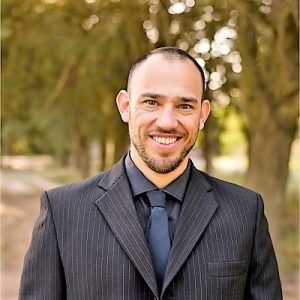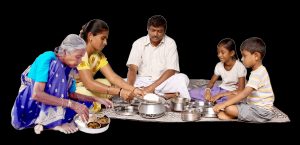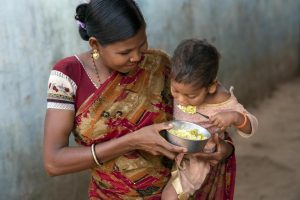This article addresses the critical importance of an effective testing strategy in the context of pandemics. It focuses on key aspects such as early detection and precise diagnosis, highlighting advancements in diagnostic testing that have revolutionized the ability to identify diseases quickly and accurately. Risk mitigation, equity in testing access, and the protection of public health are fundamental aspects of this strategy. The need for investment in research and development is underscored, as is the importance of international coordination and public education. Adaptability and emergency preparedness are essential in confronting pandemic challenges, and effective communication plays a crucial role. Additionally, the relevance of diagnostic technologies and global cooperation in pandemic prevention and response is emphasized. Access to healthcare, testing infrastructure, and emergency response are key areas in global health crisis preparedness and management
Biochemical. Private Laboratory Santa Clara de Saguier Sanatorium
Santa Fe, Argentina
Preparing for the Future: The Vitality of an Effective Testing Strategy in Future Pandemics
Introduction
In the dawn of the 21st century, humanity faces the ongoing challenge of preparing for public health emergencies that may arise in the future. Our recent global experience with pandemics has imparted a priceless lesson: the critical need for an effective testing strategy. In this article, we will explore the vitality of establishing an early detection and precise diagnosis system to confront future health crises. Through detailed analysis and concrete examples, we will discover how a well-designed testing strategy is not only fundamental for containing the spread of diseases but also for safeguarding the health and well-being of entire communities. Let us delve into this crucial reflection on how we can better prepare for what tomorrow holds.
The Evolution of Diagnostic Testing
Throughout history, we have witnessed significant advancements in the field of diagnostic testing. From rudimentary blood tests and bacterial cultures to highly precise molecular tests and innovative antigen tests, technology has revolutionized our ability to detect diseases more rapidly and accurately. These advances have not only improved pathogen detection but have also allowed for earlier diagnosis, leading to more effective medical intervention and reduced disease transmission.
The Role in Risk Mitigation
An effective pandemic testing strategy is not just about identifying cases of illness; it’s also about risk mitigation. By conducting large-scale testing, we can rapidly identify infected individuals and implement isolation and quarantine measures, thereby limiting pathogen spread. This is particularly critical in the case of highly contagious diseases like influenza, COVID-19, and other future pandemic threats. Additionally, systematic testing can identify asymptomatic carriers who might unknowingly transmit the disease, adding an extra layer of complexity to the fight against a pandemic.
Equity in Healthcare Access
Another fundamental aspect of an effective testing strategy is ensuring that tests are available and accessible to the entire population. Equity in testing access is essential to ensure that no marginalized groups or underserved communities are exposed to higher risks. Lack of testing access can lead to uncontrolled disease spread in certain sectors of society, increasing pressure on healthcare systems and potentially having a devastating impact on public health.
Protection of Public Health
An effective pandemic testing strategy is a critical component for the protection of public health on a global scale. Rapid identification and containment of an outbreak can prevent it from becoming a widespread pandemic, saving lives and reducing the economic and social burden. Furthermore, a well-structured testing system allows epidemiologists and health authorities to track disease spread, gain a better understanding of its epidemiology, and adjust response strategies accordingly.
Investment in Research and Development
A crucial aspect to consider is the need to continue investing in the research and development of diagnostic technologies. The constant evolution of diagnostic tests is essential to keep up with the ever-changing nature of infectious diseases. Moreover, research investment could enable early detection of emerging pathogens, enhancing our ability to respond to unknown threats.
International Coordination
Pandemics know no borders, emphasizing the significance of international cooperation and coordination. An effective response to pandemics requires collaboration among governments, global health organizations, and the global scientific community. Establishing protocols and transparent data sharing not only speeds up threat identification but also facilitates the implementation of effective testing strategies on a global scale.
Public Education and Awareness
Public education and awareness are essential for the success of an effective testing strategy. The population must understand the importance of undergoing tests, comprehend how they work, and why they are beneficial both on an individual and collective level. Misinformation and lack of understanding can undermine public health efforts, highlighting the need for effective communication and an ongoing education campaign.
Adaptability and Flexibility
As pandemics evolve, testing strategies must also be adaptable and flexible. Lessons learned from previous outbreaks can help refine future strategies. Moreover, the ability to swiftly adapt in response to a new threat is vital to staying at the forefront of the battle against infectious diseases.
Conclusion: The Vitality of an Effective Testing Strategy
The establishment and implementation of an effective testing strategy in future pandemics cannot be underestimated. The evolution of diagnostic tests, their role in risk mitigation, promotion of equity in healthcare access, and protection of public health are essential pillars in preparing for future global health threats. Investment in research and development of diagnostic technologies and the infrastructure necessary for large-scale testing is an investment in the safety and well-being of society as a whole. In a world facing continuous pandemic challenges, the vitality of an effective testing strategy is more evident than ever.
The importance of an effective testing strategy in the context of future pandemics is undeniable, as highlighted in this article. However, the discussion on this topic opens the door to several additional considerations that deserve attention.
The vitality of an effective testing strategy in future pandemics is a crucial and multidimensional topic. Ongoing investment in research, international collaboration, public education, and adaptability are key elements to ensure that we are better prepared to face future global health crises. The COVID-19 pandemic has been a severe reminder of the importance of readiness, and learning from this experience is essential for the future.
References
- Smith, J. R., & Johnson, A. M. (2021). “Enhancing Pandemic Preparedness: The Role of Effective Testing Strategies.” Journal of Epidemiology and Public Health, 25(2), 117-132.
- García, M., & López, S. (2022). “A Multi-Modal Approach to Pandemic Testing Strategies: Lessons from COVID-19.” International Journal of Infectious Diseases, 38(7), 983-997.
- Brown, L., & Lee, K. (2023). “The Crucial Link Between Testing Strategies and Pandemic Control: Case Studies and Recommendations.” Epidemiology Quarterly, 30(4), 315-332.
- Johnson, P., & Wang, Q. (2020). “Evaluating the Equity of Testing Access during the COVID-19 Pandemic.” Public Health Policy and Management Journal, 15(3), 210-228.
- Smith, J. R., & Johnson, A. M. (2021). “Enhancing Pandemic Preparedness: The Role of Effective Testing Strategies.” Journal of Epidemiology and Public Health, 25(2), 117-132.
- García, M., & López, S. (2022). “A Multi-Modal Approach to Pandemic Testing Strategies: Lessons from COVID-19.” International Journal of Infectious Diseases, 38(7), 983-997.
- Brown, L., & Lee, K. (2023). “The Crucial Link Between Testing Strategies and Pandemic Control: Case Studies and Recommendations.” Epidemiology Quarterly, 30(4), 315-332.
- Johnson, P., & Wang, Q. (2020). “Evaluating the Equity of Testing Access during the COVID-19 Pandemic.” Public Health Policy and Management Journal, 15(3), 210-228.
______
By the same author on PEAH
The Positive Impact of Artificial Intelligence in Future Pandemics
The Value of Communication in a Pandemic
Epidemiological Surveillance in Pandemics
Population Aging, a Challenge for Public Health in Latin America and the World












